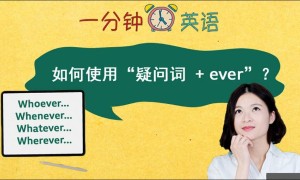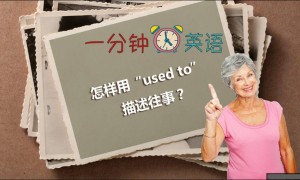Editor's note: Sayings and expression are difficult to understand for non-native speakers. One of our bloggers from the US, who goes by the online tag of Mattwritenow, lists some common mistakes made by people studying English in China. Do you agree? Comments are always welcome.
1. "A friend in need is a friend indeed."
This really is like listening to nails on a chalkboard for native speakers in China. It's so overused. I tell my students that if I was hanging out with my expat friends and decided to say this to them they'd likely give me a very strange look.
2. "Every coin has two sides."
Okay. This one is very common and it is also widely understood. But it isn't very inspirational. Why focus on the good and the bad? Instead, just "look on the bright side".
3. "A double-edged sword"
Most Chinese students I've met get the phrase wrong and say "two-edged sword", but it is still strange to use the correct phrase in everyday life. It may be used in writing, but it would change the tone of your piece. We could perhaps say that using a double-edged sword is a double-edged sword… I'll move on…
4. "Play"
"Do you want to play with me?" is a question I think you should ask only if you really know the person as it can have another meaning. My rule is that I use it onLY if I am talking about sports and games. Other options are "hang out", "go out", and "spend time with…"
5. "Pardon?"
This is a hard one, because my best friend says "pardon" all of the time and I think it's weird when he says it. Despite the fact that I know a native speaker who uses it a lot, I strongly believe that "sorry, I didn't hear you" or "can you say that again?" are both better choices.
6. "Clever"
You're not clever. You're smart, funny, talented, interesting, or wonderful. only if you are tricking someone to do something that you want them to do are you clever, or if you think of something very quickly that is unique. Other than those two situations, use a different word.
7. "Fine"
If I ask you to do something or I ask for permission, don't use the word "fine". The meaning of this word as a response to a request means that you don't really want to do it but you will do it anyway. For example, "Have you done your homework?" "Fine." You see, this is okay because it refers to my homework – and I don't mind showing that I don't want to do my homework.
8. "Quarreled"
It may sound strange, but instead of this word I suggest that you can use the word "fight". Like, "My wife and I had a huge fight yesterday!" –of course, it doesn't mean that we hit each other!
9. "Lover"
This is a little awkward to explain, but just don't use it. I know you probably hear it in songs and sometimes in TV shows, but don't use it. Seriously. Nobody wants you to stress that the person you're dating is your lover. Be a normal person and use boyfriend/girlfriend/husband/wife.
10. "TV dramas"
So I meet you for the first time and I tell you that I am American, so you tell me "I love watching American TV dramas!" It's become so common now that I don't often correct it anymore. I just say, "Wow that's great! What do you like to watch?" then they will say, "Two broke girls." The problem is, that show is a comedy, not a drama. Just say, "TV shows" from now on and you will always be correct!







